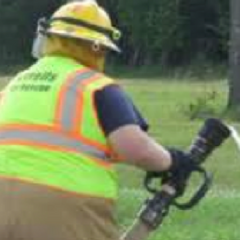Did you read my post? The actual value is what is measured. Apparently, thrre is no issue with the actual measurements. But a measurement at noon doesn't necessarily reflect the high temperature. So the temperature readings for that station would be adjusted upwards. The actual value in the raw data? No reason to question its accuracy or precision. The raw data is what it is. But for a climatologist it was fairly useless.
Likewise, a 2 degree C difference of one station versus ten others located within ten miles of it still doesn't mean that the temperature was wrong. From a weather standpoint it was probably accurate and precise. From a climate standpoint, it was an indicator of noise.
There's data a meteorologist wants and data a climatologist wants. This means that there can be two different temperatures at the same spot and time: one raw (weather dudes want it) and adjusted (climate dudes want that).
Noise is important in weather. Chaos dominates. In climate they want to filter that out. So there are, indeed, more than one value.
My wife is hotter than your wife.
Amazon 7
kallend***[Reply]The past is not changed, nor is the present. All that changes is that accuracy of the measurements is improved.
Oh. So adjustments change nothing except the data adjusted. Got it, Johnny Cochrane.
I take it the rest of my post demonstrated my utter misapprehension of it.
Don't confuse the measured value of something with its actual value.
The actual value is what it is. The measured value depends on the actual value AND on any random and systematic errors in the measuring technique. As we get better at making accurate measurements, so the measured value approaches more and more closely to the actual value. And we get better and better every year at measuring things. We can even identify the errors in previous measurements and fix them.
We even have an outfit (NIST) whose role is to provide benchmarks for measurement and testing, and to develop better testing methods.
This is not a conspiracy, it is good science.
There you go with that librul science angle yet again...... AGW... can't be real... so many people just feel it in their gut that nothing is happening. If you can't see those changes everyone is trying to shove down the country's throat with your very own eyes from their own viewpoint then nothing can be happening. Nothing to worry about all the conservative media is in agreement.
It's fascinating. The whole just look around and tell me that what you are seeing isn't because of climate change caused by human activities. Rule: correlation does not equal causation. Feelings aren't science. Looking around and concluding is what they did back in the day. "Reservoir is lower. It must be because human caused global warming is making all the water evaporate from it." That'd be silly when other causes such as ater being used or less precipitation may be the cause.
Yet people see a shrinking frozen reservoir and assume that human caused global warming is making the glaciers melt. Meanwhile, it may be that lack of precipitation is causing loss of mass. Nope. The interpretation of the rath of a sentient earth is, yes, rammed down throats. It doesn't matter than it was predicted that California would be wetter. There's a drought and it's be rammed down our throats that global warming is causing it. Till it rains - and then it'll be extreme weather that global warming is causing.
My wife is hotter than your wife.
kallend 2,217
The only sure way to survive a canopy collision is not to have one.
kallend"Prediction is very difficult, especially if it's about the future." - Niels Bohr
Yep. Depending on the prediction. I can predict that each of my kids, should they survive, will be taller in one year. And likely be correct.
But it's why climate scientists call them "projections." Because projections allow for changes in conditions. Which is why climate scientists, almost without fail, say that something "could" happen. Projections are based on assumptions. For example, a projection that the sea level in North Carolina will rise a meter by 2100.
Climate projections do things like say, "If the Greenland and Antarctic ice sheets melt, then sea level will rise by..." This has no basis in reality for tens of thousands of years. Fossil fuels will run out tens of thousands of years before this happens. But it makes a valid projection.
Could. May. Might. It's what we hear from climate scientists. The difference between a projection and a prediction. I get confused myself between prediction and projection. They aren't really predictions.
My wife is hotter than your wife.
billvon 3,172
>for changes in conditions.
Agreed. And one of the very big conditions they make assumptions about is what we do in _response_ to climate change. If we do nothing, and just grow fossil fuel usage as quickly as we can while reproducing as fast as we can, then we see more CO2 and methane and thus more warming. The IPCC refers to this as the "A1F1" scenario. If we reinforce the current trend of declining birth rates, transition to a more energy-efficient information-based economy with local sources of food and renewable energy, then we are in the B1 scenario, and we see much less warming.
You're quite right in that these are assumptions that might change with time. However, it is a mistake to think "therefore we can't possibly get it right." Since those scenarios are based primarily on our own behavior, we have all the tools needed to get it right.
(The analogy here would be a doctor who says "I honestly don't know whether you will survive your illness; if you don't take your meds or don't get the surgery, your odds aren't good. And in the past you haven't has a good track record there." Many people will immediately say "but doc, what if I DO take my meds and get the surgery?" That decision narrows the range of odds considerably. It would surely be foolish for the patient to hear the initial prediction and say "oh well, nothing I can do, medical science just sucks I guess.")
Do we care enough to do the work to make sure those assumptions are right? That's the big question. The "ignore it and maybe it will go away" factor has been a very strong one.
Like the assumption of climate sensitivity to CO2. We still don't kno what it is. Assumptions about the oceans. Some projections have up to six meters of sea level rise by 2100. (Meaning that from this date, it would be 2 3/4 inches per year of sea level rise. Rate right now is 8 inches per century. What is that? Sea level rise increasing by a factor of 30? It's less than a quarter of even a meter.) A couple of years ago, a paper was published showing a significant factor in recent sea level rise being the depletion of water from lakes and underground aquifers. (All that water from the Aral Sea went somewhere).
[Reply]Do we care enough to do the work to make sure those assumptions are right?
No. We'd rather tax carbon and cost trillions of dollars in the hopes that the world will catch on when it won't. We could geo-engineer it away cheaply but that isn't happening. Sure, kids are starving and people are dying by the tens of thousands every year from preventable diseases. Fuck em. We've got a planet we're worried about. The people on it? No. Not worried about them.
California is about to institute yet another gasoline tax. Probably 40 to 50 cents per gallon. Serious question, bill: will it do a damned thing for global warming? Anything? Will is slow down sea level rise a centimeter in the next century?
No. It will have no effect on climate. On the world. It won't do anything about it. But hat it will do is, once again, fuck over the poor and middle class by treansferring money from those who rely on transportation to do things like work. That money is going somewhere, and there will be people who will make a lot of money from it.
Sure, we can take that money being given to climate change and put it to education. But then we might see an appreciable benefit. I'm sure that those people on the coast of Somalia have no greater worry than the fate of their great great grandchildren. Except eating, having shelter, that sort of thing. Even hospitals might use that money to help people do things like live.
No. Let's just tax people more and for something that will not make a dent in climate change. "Dear out of work field worker - it'll cost more to take your kids to school. But it's necessary to do nothing about climate change."
Sure, we could dump trillions into infrastructure, education, medicine and have enough left over to geoengineer climate change mitigation that would work, but that isn't what is wanted. Why not? Why seize money and dump it into a policy that will be useless?
My wife is hotter than your wife.





.thumb.jpg.4bb795e2eaf21b8b300039a5e1ec7f92.jpg)

Oh. So adjustments change nothing except the data adjusted. Got it, Johnny Cochrane.
I take it the rest of my post demonstrated my utter misapprehension of it.
Don't confuse the measured value of something with its actual value.
The actual value is what it is. The measured value depends on the actual value AND on any random and systematic errors in the measuring technique. As we get better at making accurate measurements, so the measured value approaches more and more closely to the actual value. And we get better and better every year at measuring things. We can even identify the errors in previous measurements and fix them.
We even have an outfit (NIST) whose role is to provide benchmarks for measurement and testing, and to develop better testing methods.
This is not a conspiracy, it is good science.
The only sure way to survive a canopy collision is not to have one.